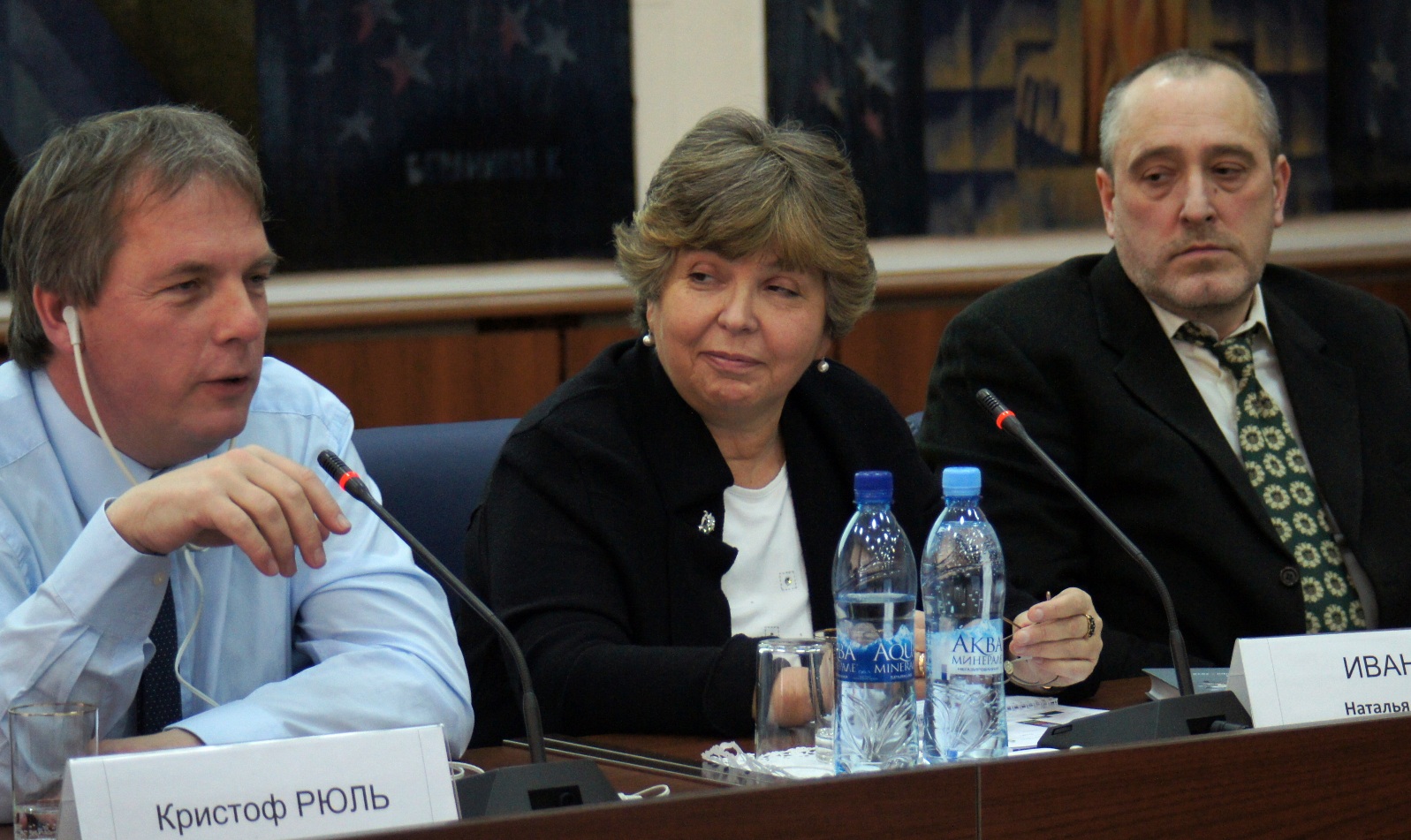Ukraine Eyes Key Role in Azerbaijani Gas Transit to Europe
 By Fuad Shahbazov, Baku-based independent regional security and defence analyst By Fuad Shahbazov, Baku-based independent regional security and defence analyst
Ukraine is positioning itself as a key transit hub for Azerbaijani gas to Europe, a move that could significantly alter the region’s energy landscape. If successful, this would carve out a new role for Kyiv after Russian supplies stopped flowing to the rest of Europe via Ukraine on January 1, pushing up European wholesale energy prices. The expiration of the Russian gas deal at the beginning of 2025 and Kyiv's decision not to prolong the agreement triggered heated debates within the European Union as countries like Hungary and Slovakia harshly criticised Ukraine, accusing it of igniting the energy crisis with no drastic impact on Russia. READ MORE
Azerbaijan’s SOCAR Invests in Türkiye’s Energy Sector
 By Fuad Shahbazov, Baku-based independent regional security and defence analyst By Fuad Shahbazov, Baku-based independent regional security and defence analyst
On January 6, the State Oil Company of the Republic of Azerbaijan (SOCAR) announced plans to invest $7 billion in Türkiye’s energy sector in the coming years. Between 2008 and 2024, SOCAR Türkiye, SOCAR’s local subsidiary, invested $2 billion into the development of the petrochemical facilities of the Petkim petrochemical company privatized by SOCAR. The total investments of the company in the Turkish economy accounted for more than $18 billion between the same period, making the company the largest foreign investor in the country. In 2018, Azerbaijan made its largest one-time foreign investment in Türkiye by establishing the SOCAR Star Oil Refinery, which has an oil processing capacity of approximately 214,000 barrels per day. SOCAR’s steady inroads into Türkiye and further into the Balkans and Eastern Europe enable Baku to implement its geopolitical and geoeconomic interests while boosting strategic alliance with Ankara in many important fields READ MORE
Uncertainty abounds in talks on the possible export of Turkmen gas to Europe  By Vasif HUSEYNOV, PhD, Head of Department, AIR Center, Adjunct Lecturer, ADA and Khazar Universities, Baku By Vasif HUSEYNOV, PhD, Head of Department, AIR Center, Adjunct Lecturer, ADA and Khazar Universities, Baku
On May 14, Turkish Minister of Energy and Natural Resources Alparslan Bayraktar and Azerbaijani Minister of Economy Mikail Jabbarov signed an agreement on cooperation in the field of natural gas, including the export of Central Asian gas to Türkiye. Bayraktar told the media that by 2030, Türkiye is expected to receive increased gas supplies from Azerbaijan’s natural gas deposits and the Caspian Sea’s natural gas reserves, though he did not specify how much. Some of the gas flowing to Türkiye will transit onward to Europe. Bayraktar highlighted that a key aspect of the deal was arrangements for transporting Turkmen natural gas to Türkiye via Georgia and Azerbaijan. In recent years, traditionally isolated Turkmenistan has begun to seek more cooperation with outside partners, especially in the energy sector. The transit of Turkmen gas to Türkiye and onward to European markets would go a long way in removing ongoing reliance on Russian supplies. While Bayraktar did not disclose the planned transit route for the Turkmen gas to Azerbaijan or the amount of gas involved, several recent developments offer hints on how the two sides plan to carry out this project.
READ MORE
Black Sea Energy Submarine Cable – New Transit Role of Georgia  By Nika CHITADZE, PhD, Director of the Center for International Studies, Tbilisi By Nika CHITADZE, PhD, Director of the Center for International Studies, Tbilisi
The third decade of the 21st century, along with other global events and changes, is remarkable in terms of energy. The global cataclysms and the ongoing war on the European continent have particularly highlighted the political and ecological importance of energy. Despite the vital challenges, Europe is firmly committed to the policy of the Green Energy Agreement and the way to combat climate change.
The reduction of fossil fuels was already a priority of the environmental policy, which was not only changed after the start of the war by Russia but also the sanctions introduced against the aggressor were added. Sanctions mostly apply to energy carriers, which Russia has been using as political leverage for many years. The created situation showed us that Europe needs reliable corridors for the import of the same products along with the production of green energy. This situation opens completely new opportunities for several countries, among which Georgia occupies a key place – Georgia, which is an important link of the middle corridor.
READ MORE
How Will the Ukraine Crisis Shape the World Energy Market?
 By Fuad SHAHBAZOV, Baku-based independent regional security and defence analyst By Fuad SHAHBAZOV, Baku-based independent regional security and defence analyst
Russian military aggression against Ukraine launched almost two months ago has clearly signalled a change in the traditional world order and triggered the unprecedented reaction of the Western coalition led by the U.S. The ongoing conflict between Russia and Ukraine has left the global energy market uncertain, threatening to cause severe energy shortages and oil prices exceeding $110 per barrel.
Since the Russian intervention in Ukraine kicked off, numerous sanctions packages have been imposed on Russia, hitting mostly financial institutes and state-owned companies. This resulted in Western countries’ consolidation, and the collective refusal of Russia-related transactions and import of Russian natural gas, oil, and coal. READ MORE
Why Are Gas Prices So High?   by Dr Jack Sharples (Oxford Institute for Energy Studies and EGF Associate Researcher) by Dr Jack Sharples (Oxford Institute for Energy Studies and EGF Associate Researcher)
Mike Fulwood (Oxford Institute for Energy Studies)
.
We analyse the drivers behind ongoing price rally and offer an outlook for the coming winter. On the global LNG market, unexpected outages meant that growth in supply simply did not keep pace with the increase in demand. Given its role as the ‘balancing market’, European LNG imports declined. This combined with declines in European production and pipeline imports to open a supply gap that could only be met by withdrawals from storage. We conclude that with gas markets noticeably tighter, the ongoing price rally is driven by fundamentals, with an added ‘fear premium’ that the forthcoming winter could be as cold as that in 2020/21. If that proves to be the case, the current price levels will persist, and even rise, while a milder winter could see the market turn slightly more bearish. READ MORE.
- December 15, 2021 09:22AM
Nuclear Energy for Uzbekistan: Achieving Decarbonization Targets and Resolving Energy Shortages  Embassy of the Republic of Uzbekistan in the Kingdom of Belgium Embassy of the Republic of Uzbekistan in the Kingdom of Belgium
On 29 January 2021 the Brussels-based media outlet EU Today and the Brussels Press Club in Brussels hosted a conference dedicated to the construction of nuclear power plants in Belarus, Turkey and Uzbekistan. Despite the fact that plans for the construction of new power units are being considered at various stages both in the EU member states-Finland, Hungary, the Czech Republic, Bulgaria, and in the UK, Pakistan, the United Arab Emirates, etc., the discussion was focused on these countries. Much attention at the conference was paid to the construction of nuclear power plants in Uzbekistan.
READ MORE
The Role of the ESP in Gazprom’s European Sales Strategy  By Jack Sharples, PhD, Research Fellow of the Oxford Institute of Energy Studies and EGF Associate Researcher on the External Dimensions of Russian Gas By Jack Sharples, PhD, Research Fellow of the Oxford Institute of Energy Studies and EGF Associate Researcher on the External Dimensions of Russian Gas
Gazprom Export launched its Electronic Sales Platform (ESP) in the context of an increasingly competitive European market. Sales volumes have grown, and have averaged 2 bcm per month since April 2019. As a result of this growth, the ESP is now a key part of Gazprom’s European sales strategy: It generates additional sales revenues, optimises Gazprom’s use of is physical export infrastructure, and provides a constant flow of valuable market data that informs Gazprom’s wider sales strategy. Sales are largely concentrated in four countries, while deliveries are split between Ukrainian and non-Ukrainian routes. ESP sales prices closely track European hub prices for comparable products, and the sales volumes show that Gazprom’s counterparties consider the ESP an attractive offering. The operation of the ESP highlights the crucial element of Gazprom’s European sales strategy: The importance of nuanced optimisation, as Gazprom seeks to maximise its sales volumes without placing excessive downward pressure on European hub prices that would impact revenues from its hub-indexed LTC portfolio. Overall, the ESP demonstrates how far Gazprom has evolved in the past decade, as it seeks to retain market share on an increasingly competitive European market. READ MORE
The 100th Issue of Gazprom Monitor  By Jack Sharples, Research Fellow of the Oxford Institute of Energy Studies and EGF Associate Researcher on the External Dimensions of Russian Gas By Jack Sharples, Research Fellow of the Oxford Institute of Energy Studies and EGF Associate Researcher on the External Dimensions of Russian Gas
Dear Colleagues,
It is with great pride that we send you this 100th edition of the Gazprom Monitor.
The Gazprom Monitor was the brainchild of Dr Marat Terterov, Founder of the European Geopolitical Forum and the Brussels Energy Club. The first issue of the Gazprom Monitor was published in December 2010. […] Since that first edition, almost nine years ago, we have seen the launch of Nord Stream, the replacement of South Stream and Nabucco by the Turkish Stream and TANAP-TAP pipelines, a dramatic increase in the use of hub-indexation in place of oil-indexation in Gazprom’s long-term export contracts, the conduct and settlement of the EU antimonopoly investigation into Gazprom, the launch of Gazprom’s own Electronic Sales Platform, the completion of Gazprom’s acquisition of the Belarusian gas pipeline system, the long-running sagas of the Gazprom-Naftogaz and Gazprom-Lithuania arbitration cases, the cessation of direct Ukrainian gas imports from Russia, the sale of Gazprom’s shares in pipelines in the Baltic states, the launch of new LNG import terminals in the Netherlands, Lithuania, Poland, and France, opening the door to competing LNG from around the world including, most recently, from the United States, and the volume of Gazprom’s annual gas exports to Europe growing to record levels in 2017 and 2018.READ MORE
Russia Proposes to Build Nuclear Power Plant in Azerbaijan  By Fuad Shahbazov, Baku-based independent regional security and defence analyst By Fuad Shahbazov, Baku-based independent regional security and defence analyst
On October 3, Azerbaijani President Ilham Aliyev paid an official visit to Russia to attend the 16th annual meeting of the Valdai International Discussion Club, in Sochi (President.az, October 3). Aliyev’s speech at the high-level event touched on multiple topics, including Azerbaijan’s partnership with Russia, the unresolved issue of Karabakh, and regional security in the South Caucasus region, to name a few. Notably, during his remarks, Aliyev declared, “Nagorno-Karabakh is Azerbaijan—exclamation point!” which sparked heated discussions in both Azerbaijani and Armenian mass media and online (Turan Agency, October 4). READ MORE
Gazprom’s “Pipeline Policy” in the Black Sea Region  By Greta K. Wagner, Student, University of Glasgow, Intern, The European Geopolitical Forum By Greta K. Wagner, Student, University of Glasgow, Intern, The European Geopolitical Forum
The Black Sea is often described as a strategic crossroads, which links east-west and north-south transport corridors. Particularly with regard to hydrocarbon resources, the Black Sea serves as a transit route between suppliers in Russia, the Caspian region, Central Asia and the Middle East and consumers in the European Union. Given its strategic importance, the Black Sea is an important puzzle piece for Russia’s “energy superpower” strategy. READ MORE.
Launch of the TANAP Pipeline: Implications for the South Caucasus  By Benyamin Poghosyan, PhD, Executive Director, Political Science Association of Armenia By Benyamin Poghosyan, PhD, Executive Director, Political Science Association of Armenia
On June 12, the official launch ceremony of the TANAP pipeline was held in Turkey. TANAP is the key component of the Southern Gas Corridor, which should bring Azerbaijani gas to Europe, circumventing Russia. At the initial stage, annually 6 billion cubic meters of gas will be supplied to Turkey and another 10 billion through South Eastern Europe mainly to Italy. In later stages, the volume may be increased due to additional gas from the Azerbaijani Shah Deniz field, or potentially involving other gas sources such as Iraq and Turkmenistan. READ MORE
Implications of the Crimea Crisis for Energy Markets: Vulnerabilities of Markets and Weakness of States
 Dr Andrei V. Belyi, Dr Andrei V. Belyi,
EGF Guest Contributor
A crisis of international governance spreads into the political sphere and puts under peril the peace between the Russia and Ukraine, in addition to heightening tension between Russia and the West. The political rhetoric from Brussels, Moscow and Washington increasingly resembles that of the Cold War. Many ask if there are serious implications in security of energy supply, as well as in investment and trade, either among causes or consequences of current events. The current situation demonstrates a deep vulnerability of states in the face of markets, and will be analysed along three groups of energy implications: transit-supply flows, investments and effects of sanctions. READ MORE
- November 25, 2014 20:53PM
Russian Gas Supplies to Europe: the Likelihood, and Potential Impact, of an Interruption in Gas Transit via Ukraine
 Jack Sharples, EGF Associate Researcher and Andrew Judge, EGF Guest Contributor Jack Sharples, EGF Associate Researcher and Andrew Judge, EGF Guest Contributor
The current tensions in Ukraine have generated speculation about the security of Russian gas supplies to the EU via Ukraine. This short article analyses the likelihood of a suspension of Russian gas supplies via Ukraine and the impact of such a suspension on EU gas imports. We find that a suspension of gas transit is far from inevitable, but cannot be ruled out. The impact of such a suspension would disproportionately affect Central and South-East Europe, with this region divided between those that have access to gas storage and/or alternative supplies, and those that do not. In this regard, Bulgaria remains the only EU member state in this region that has neither sufficient gas storage nor access to alternative supplies. READ MORE
Russian Gas Supplies to Europe: the Likelihood, and Potential Impact, of an Interruption in Gas Transit via Ukraine
 Jack Sharples, EGF Associate Researcher and Jack Sharples, EGF Associate Researcher and
Andrew Judge, EGF Guest Contributor
Amidst the current tensions about Russian military deployment in Crimea, there has been considerable speculation in the European and American media about the security of Russian gas supplies to the EU. Such speculation is generated by a combination of concerns over the level of dependency on Russian gas imports faced by several EU member states and fears that the Russian government considers gas exports to be an ‘energy weapon’ that can be deployed against its former Soviet neighbours. This short article will address the likelihood of a suspension of Russian gas supplies to Ukraine and the impact of such a suspension on EU gas imports. READ MORE
Energy Relations between Gas-Troika Members and the European Union
 Fatemeh Shayan, University of Eshfahan, Iran Fatemeh Shayan, University of Eshfahan, Iran
University of Tampere, Finland
Guest contributor to EGF
Do such organisations exist beyond the ‘self fulfilling prophecy’ level?
Much research has examined energy relations between the European Union (EU) and Russia,[1] but not the larger picture of energy relations between the EU and the Gas-Troika, made up of members Russia, Iran and Qatar. Although the Gas-Troika is in an early stage of development, increasing demand for gas, especially from the EU, has noticed members to attempt to present it as a future gas superpower. READ MORE
Guest contribution: Gazprom is still relevant to the EU market, but for how long?
 by Professor Natasha Udensiva by Professor Natasha Udensiva
The U.S. shale gas revolution is spreading: more and more countries are talking about developing their own shale gas resources. How is this relevant for Gazprom? It is relevant because, with more countries developing their natural gas resources, Gazprom’s once-powerful monopoly may soon lose its hold on the European market. So far, the company’s strategy has relied on the exclusiveness of its vast resources. But shale development is undermining this very quickly. Soon, access to technology will trump resource access. Then, Gazprom’s only chance of reasserting its presence will be to lower its prices. READ MORE
South Stream Shapes European Energy Security, Nabucco Falls Behind  By Igor Alexeev By Igor Alexeev
Russian journalist and blogger for Strategic Culture Foundation and Route Magazine. He writes on the oil and gas sector, Eurasian energy security and shipping industries in the Arctic.
South Stream is an ambitious endeavor of Russia’s energy giant Gazprom to get direct access to the EU energy market. It is portrayed and criticized by some politicians in Europe as a “dangerous” gateway to a broader economic relationship with Moscow. Remarkably enough, Bulgaria, Serbia, Croatia, Slovenia and Hungary have one-by-one opted for the project.
The South Stream Fact Sheet
- Gas pipeline will be 1455 km long in Southern and Central Europe;
- 8500 people will be employed in its construction, with 770 at the operational level;
- Eight compression stations are to be set up in the main transit countries;
- The South Stream planned transport capacity may reach 63 billion cubic meters;
- The overall cost of the project is approximately $39 billion.
READ MORE
What are the main obstacles for realisation of Southern Energy Corridor projects?  Martin Vladimirov, Martin Vladimirov,
Expert on Balkan-Black Sea External Relations and Energy Security
It has been two decades now since the southern energy corridor, linking the energy producing Caspian and Middle East regions with European consumers, was incepted. The 1990s proved to be very successful after the U.S. was able to fill in the geopolitical vacuum in the Wider Black Sea region and divert significant amounts of Caspian oil and gas away from Russia and in direction Europe. Yet the strong push for diversification of the European energy supply came to a sudden halt after 9/11. The U.S. changed its geopolitical priorities focusing on the destabilized Middle East and South Asia. Since then the EU has been painfully searching for alternatives in accessing the vast Caspian reserves. The Nabucco gas pipeline, which has been seen as the strategic continuation of the Baku-Tbilisi-Ceyhan (BTC) corridor, has remained only a distant dream as gas quantities available are simply not enough to fill the 31 billion cubic meters (bcm) pipeline capacity. READ MORE
BP Energy Outlook 2030 
Within the framework of the IMEMO’s Oil and Gas Dialog Forum BP's chief economist Christof Rühl presented BP Energy Outlook 2030 to the audience of the Russian academics It was stressed that the outlook’s ‘base case’ reflects a ‘to the best of our knowledge’ assessment of the world’s likely path from today’s vantage point, drawing on expertise both within and outside the company. The outlook highlights the growing role of developing economies in global energy consumption, and the increasing share of non-fossil fuels in global energy supply. It emphasizes the central role markets and well-designed policy can play to meet the dual challenge of solving the energy needs of billions of people who aspire to better lifestyles, and doing so in a way that is sustainable and secure. It also notes the uncertainties attached to any long term projection. The discipline of building a numerical projection sharpens our thinking, but the precise numbers are less important than the underlying story of the challenges we all face and the choices we make in producing and consuming energy. To read the report please click EGF or BP
- February 27, 2012 19:53PM
EGF Forum Outlook: Assessing Gazprom’s Next Movements
In a recent briefing on Russia, this Forum expressed the view that Moscow is becoming an increasingly assertive regional player in the wider Black and Caspian Sea (BCS) basin and that energy remains a key Russian priority for the region. We commented in that report that the Russian state-controlled energy holding, Gazprom, provided Moscow with a significant instrument to exercise power in the region.
The company has been widely employed as a means of developing (geo)-politically relevant energy cooperation with other former-Soviet states of the region, as well as securing bilateral energy deals with select foreign corporate and state partners. Yet a substantial degree of uncertainty has recently begun to emerge around Gazprom’s corporate prospects for the near term, clouding its capacity of advancing Russian geopolitical interests both in the BCS region as well as the wider European context. READ MORE
The Elusive Goal of Energy Security: Dynamics and Core Challenges of Polish Energy Sector In recent years energy security has become not only a political buzzword but a fundamental concept in (re)shaping relations between governments within the framework of a newly emerging global energy order. Furthermore, factors such as the growing asymmetrical dependence of energy consuming states on producing states, the delicate question of transport (particularly the definition of future pipeline routes), changing trends of economic development, and geopolitical tensions tend to distort established negotiating positions and shift the balance of global power relations. In such a complicated context, it is easy to overlook developments in countries such as Poland which are not in the international spotlight. As Poland has shown resilience in avoiding recession and is becoming an important player in the international arena, it may be interesting to examine the actual dynamics and the core challenges of the country’s energy sector. READ MORE
EGF Forum View: Considering Greece as an Alternative Energy Corridor
August 2010
Marco Pantelakis
EGF Eurasia Energy Analyst
Greece Vs Turkey
Over the last decade, two energy rings have been forming in the Balkan/Caspian oil and gas pipeline/energy supply route context, first in Turkey and then in Greece. As a result, both countries have been elevated to the role of strategic energy corridor territories, linking the energy-rich Caspian region with Europe. Both Turkey and Greece exhibit vast potential in connecting Caspian supply sources with Western markets, both independently of one another as well as in unison. Taking this into account, the EU and the US in particular have endorsed policies which have privileged Turkey as the main interconnector between Europe and the Caspian in the scramble for European energy security. However, Ankara’s current geopolitical reorientation towards Russia (with whom it has developed a pragmatic, yet strong energy partnership) and the Middle East, along with the several security-political shortcomings that undermine the stability of the Turkish energy grid, might lead toward a rethinking of Western energy policy toward the alternative, emergent Greek (energy) ring. READ MORE
|
|